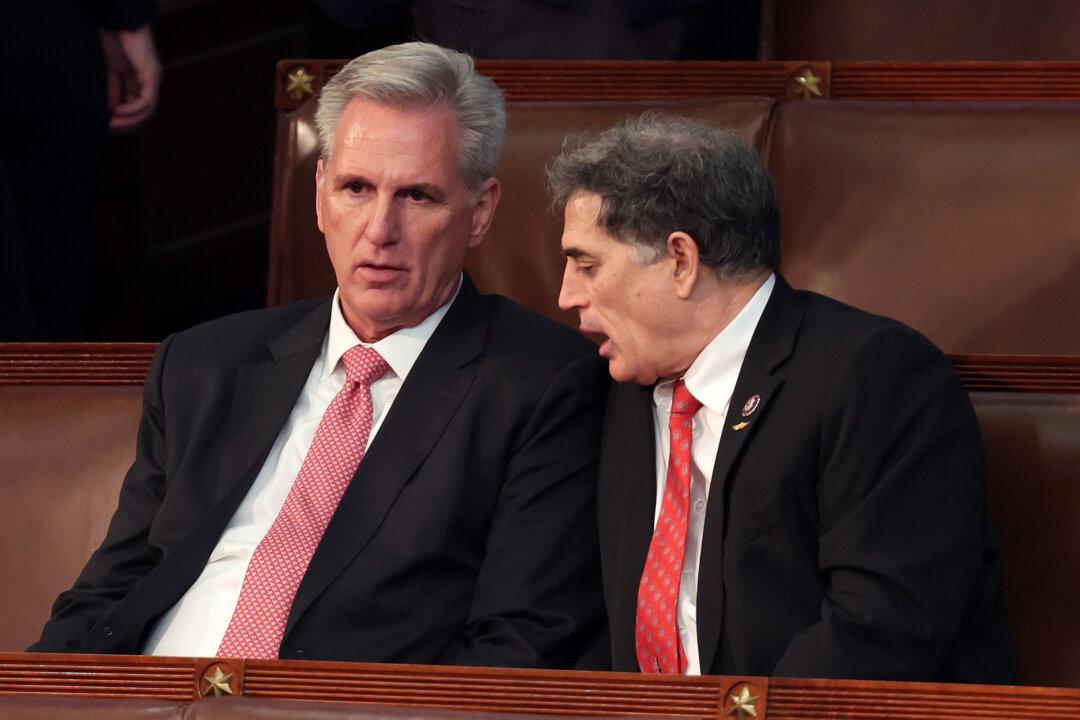WASHINGTON—Rep. Kevin McCarthy (R-Calif.) lost an 11th straight vote late Thursday in his bid to become the new speaker of the House of Representatives, but his team’s intensive back-room bargaining appeared to be closing in on a deal with many of the populist conservatives who are demanding new leadership in Congress.
As occurred in the 10 previous counts, beginning on Jan. 3, Democratic leader Rep. Hakeem Jeffries of New York received the votes of all 212 members of his party.






